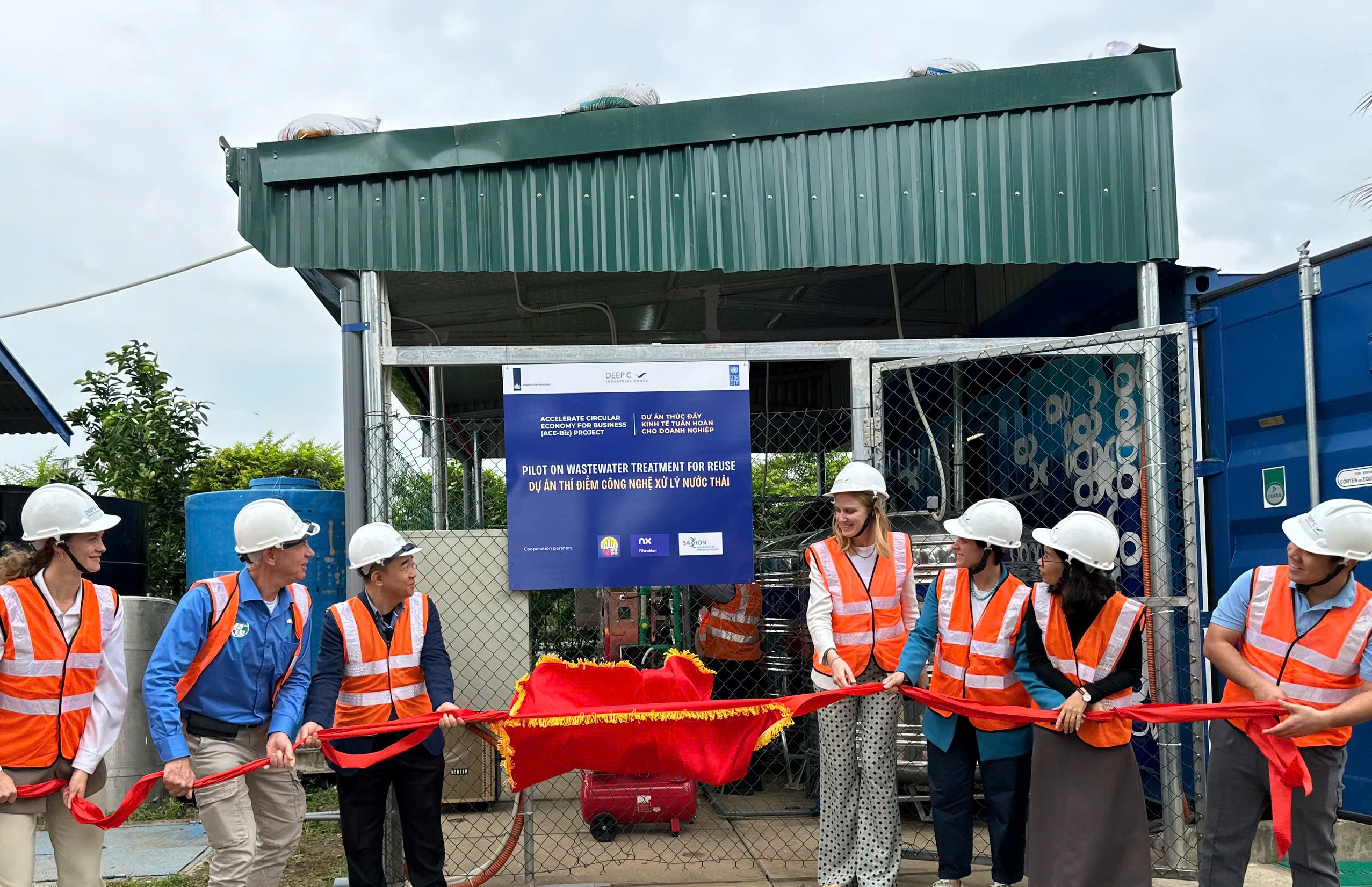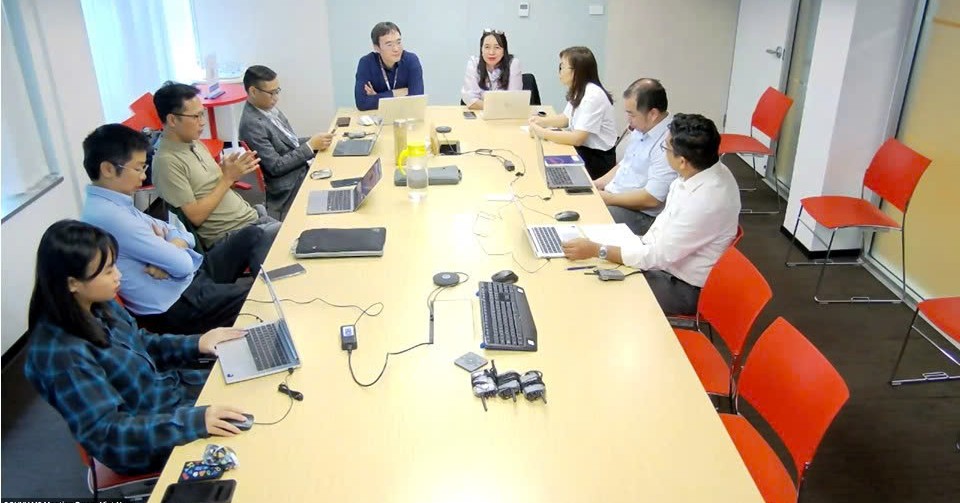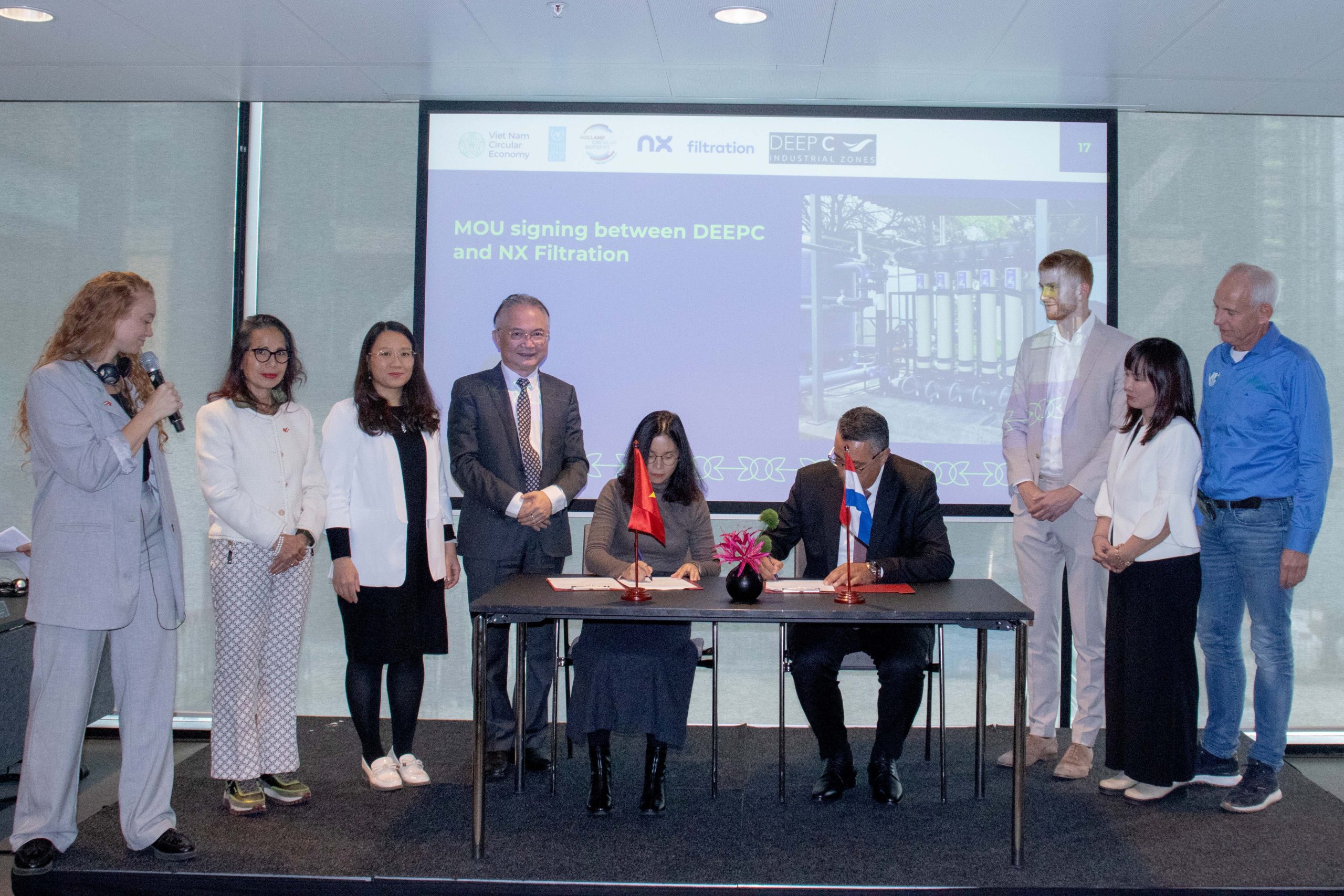They are women collecting trash, and waste who are very self-conscious but then confidently encourage people to sort waste at source to advance the process of promoting the circular economy.
Ms. To Thi Bich Hue (32 years old) in Nhon Hai commune, Quy Nhon city, Binh Dinh said that she has been working in the field for 4 years. Her previous day started from early morning until late afternoon. Some days she sold 100,000 VND for scrap, some days she didn’t.
This woman said that although she is a waste collector, she only digs to pick up only what can be sold such as plastic boxes, and tin shells…

Ms. To Thi Bich Hue in the conversation with the reporter
“After being invited by the Women’s Union to participate in the project, I received training, so I also broadened my knowledge about the environment and became more conscious of waste. From there, if I go on the street, I see recycled waste. Then I collect them, and when I go home, I also practice sorting household waste.
What’s even more fun is that when participating in the project, in addition to training, providing knowledge, working in groups, and interacting with other waste collectors like me, they also get loans, weights, raincoats, bicycles, etc., income 3-4 million months”, Ms. Hue confided.
In the same profession as Ms. Hue, Ms. Ha Thi Dien (62 years old, Ha Long City, Quang Ninh) added, besides the benefits of participating in the project, such as interest-free loans, bicycles, and insurance working households, equipped with knowledge about waste, waste classification … what she is most happy about is that she no longer feels “left behind”.
“Working as a waste collector is already considered the bottom of society. But when doing the job now, I see that there are “colleagues”, united to love each other, and love life more. From the knowledge provided by the project, in addition to practicing in our own family, we also continue to mobilize relatives and neighbors to participate in sorting waste at home,” said Ms. Dien.
These are two of the more than 1,800 trained informal waste treatment workers and more than 80 women working in the fields of waste collecting in five cities who are entitled to interest-free funding.
They are participants in the project “Scaling Up a Socialised Model of Domestic Waste and Plastic Management in 5 Cities”, including Quang Ninh, Da Nang, Binh Dinh, Binh Thuan, and Binh Duong in collaboration with United Nations Development (UNDP), Embassy of Norway and Women’s Union, Farmers’ Association of 5 provinces and cities.

The conference
According to the assessment of the project management board, people’s awareness and participation of stakeholders in reducing single-use plastic and enhancing waste management have increased by 40%. More than 100 regulations on sustainable production and consumption of materials have been adopted. More than 100 cruise ships in Ha Long Bay, Quang Ninh have pledged not to use single-use plastic.
Mr. Patrick Haverman, UNDP Deputy Resident Representative, said that waste workers, especially those in the informal sector, play an important role in the waste management system and in boosting the circular economy. They are vulnerable and take a number of risks, such as when collecting waste there is a possibility of exposure to hazardous materials and medical waste.
“Therefore, it is essential that waste workers are protected, supported with basic equipment, trained to raise awareness, and clearly identified in the waste treatment system.
We have helped organize over 35 training courses for more than 1,800 informal waste workers, mainly women, and established five microcredit funds, all of which have resulted in an increase in their incomes. up at least 20% compared to before the project”, Mr. Patrick Haverman informed.
Domestic waste management is a major concern in our country as the number of waste derivatives is increasing at an unprecedented rate and is expected to triple in the next 15 years. In addition, Vietnam has also become a large plastic producer and consumer with a spike in plastic consumption (from 3.8kg/person in 1990 to 41.3kg/person/year in 2018). This has negative impacts on the environment and human health.
Currently, in our country 70% of waste is treated at landfills, where environmental standards are still limited, the rest is treated in the form of incineration or discharged into the environment.
Source: N. Huyen (infonet)
















